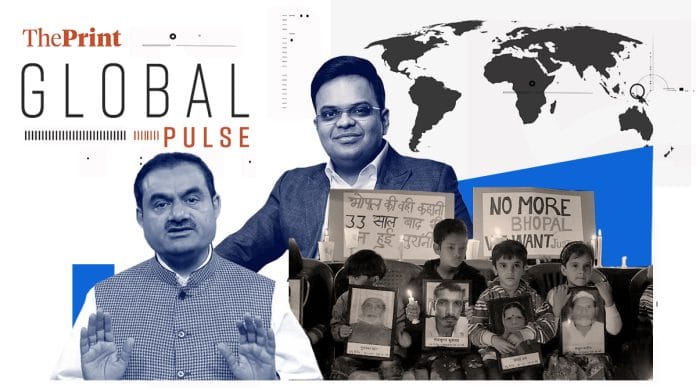New Delhi: Forty years after the world’s worst industrial accident of the time, The Economist memorialises the Bhopal Gas Tragedy, calling it an “unending nightmare”. Both the suffering and the search for justice continue, it says.
Neither Union Carbide nor its employees have faced any real consequences for their negligence. Survivors and families of the dead are still fighting for their compensation. Additionally, the toxic effects of the gas persist to this day, and the toxic waste is yet to be disposed of properly.
The reconstruction is brutal. The Economist unpacks how difficult the fight for justice has been and how debilitating the after-effects of the gas leak—which still causes health issues today. “The damage is also more far-reaching than previously believed. There is evidence that the gas caused harm up to 100km from the site—far beyond the 4.5km radius originally identified by public health officials,” the report says.
But the Indian authorities, unfortunately, seem to have learned only one lesson from the disaster. In 2019, the central government passed a bill that “capped foreign firms’ liability for nuclear accidents at $180m” while attempting to get foreign companies to invest in energy.
While The Economist looks to the past, Reuters looks to the future—an exclusive report claims that Bangladesh wants to renegotiate the Adani power deal. Unless the court cancels the power purchase deal, the Bangladesh government, Reuters reports, wishes to continue with the Adani Group but with lowered prices.
The High Court ordered a committee of experts last week to re-examine the 25-year contract signed in 2017—under which Adani has been supplying power to the country from a $2 billion coal-fired 1,600-megawatt plant in Jharkhand.
Adani, of late, halved the supply to Bangladesh over a delay in payment. Later, the Bangladesh power minister said the country would keep paying for the imported power, but the prices were too high and needed renegotiation. “Renegotiate in case of anomalies in the contract. Cancel only in case of irregularities such as corruption and bribery,” Bangladesh’s power and energy adviser Muhammad Fouzul Kabir Khan said.
Dawn reports on Jay Shah’s appointment as the youngest-ever chairman of the International Cricket Council.
Quoting a press release heralding Shah’s term as a “new chapter of global cricket”, the report summarises how Shah, the “son of Prime Minister Narendra Modi’s home minister Amit Shah”, was the “sole candidate for the role” after former president Greg Barclay did not seek a third term.
“The appointment comes as Pakistan and India were in a deadlock regarding the venue of the ICC Champions Trophy scheduled in Pakistan,” the report explains. The tournament, scheduled in Pakistan from February 19 to March 9, has become part of a dispute since the BCCI refused to send its team to Pakistan, “citing political and security concerns, despite assurances from all member boards regarding the security arrangements and the tentative match schedule”, Dawn reports.
“An online meeting convened by the ICC on Friday aimed at resolving the issue and announcing the match schedule lasted just 15 minutes due to the uncompromising stance of both the PCB and the BCCI,” the report adds. Both boards, however, have “retracted from their earlier stance and have agreed to play their future matches in ICC tournaments on a hybrid model”.
(Edited by Madhurita Goswami)






